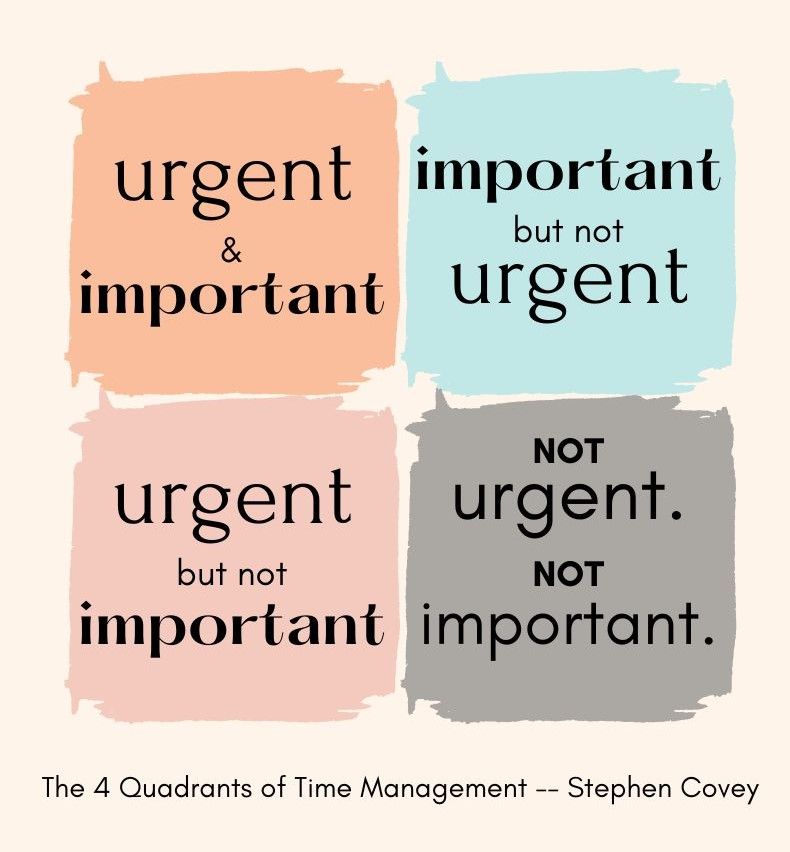7 lessons that helped me find joy and peace after a depressive episode
"If the ladder is not leaning against the right wall, every step we take just gets us to the wrong place faster."
Throughout high school, I scrambled around trying to accomplish everything I felt I should be doing. In the early years, this was fine, but when the intensity kicked up a notch, damn, it was like running a marathon without knowing how to breathe.
All I wanted was to help people. Instead of believing in that mission from the get-go and exploring the various ways I could fulfil it, I settled. I thought having a job title in mind, especially when every adult asked “What do you want to do?”, was the way to go. So I said “I want to be a psychologist”, even though its demands didn’t match up with the life I wanted. My future became a source of stress and unease because I refused to voice my doubts and consider different directions. I didn’t know anything, or intuitively understand, personal leadership so every day I made sacrifices that ironically moved me closer to a mental breakdown.
I picked up ‘The 7 Habits of Highly Effective People’ right after my final exams wrapped. For months my concentration had been shot so diving into a chunky non-fiction read was more than a bit ambitious. Unexpectedly, it reignited my attention span. Beyond that, the transparent and relatable narration disarmed me and when my many pitfalls were pointed out, I felt strangely empowered, instead of attacked.
Personal Leadership
Stephen Covey coined the term "Begin with the End in Mind". Essentially it asks ‘What is the impression you want to leave behind? What do you want people to remember when you are gone?’ This might seem a bit morbid but it’s the best way to get your imagination going, so you can consciously reverse-engineer your ideal life. The cornerstone of this concept is taking responsibility for the first (a.k.a mental) creation of your life.
Application: Write a personal mission statement. The purpose here is to express what you want to be and do in your life. Don’t obsess about getting everything down at once. This is not a rigid '10-year plan’, it will never be set in stone; as you learn, grow, take up new roles, and re-evaluate priorities, there is no telling how much this document will change. Regardless, taking the time to clarify your vision and values, and then keeping them in mind when making choices, is one of the most high-impact changes you can make.
When drafting, remember to include all of your roles. This will help you maintain balance and prevent unintentional neglect of important areas (ie. your health, specific relationships, etc.)
"Personal leadership is not a singular experience. It doesn't begin and end with the writing of a personal mission statement. It is, rather, the ongoing process of keeping your vision and values before you and aligning your life to be congruent with those most important things."
Be Proactive!
"Proactivity means that as human beings, we are responsible for our own lives. Our behaviour is a function of our decisions, not our conditions... We have the initiative and the responsibility to make things happen."
Mistakes
"It is not what others do or even our own mistakes that hurt us the most; it is our response to those things…"
When we make mistakes, we must admit and correct them as quickly as possible. Otherwise, we disempower ourselves in the next moment.
Something I’ve gathered from my own emotional outbursts is to forgive myself, before seeking forgiveness. Whatever I said in the moment likely came from a place of amplified emotions. Instead of dowsing myself in guilt and lighting a match of self-criticism, I now choose to process the feelings that spurred the reaction. By seeking to understand, and then moving on, I spend less time obsessing over things I can't change and hopefully reduce the possibility of repeating my mistakes.
Commitments
Once you have a personal mission statement, take aligned action: make a promise and keep it OR set a goal and put in the work to achieve it.
This puts you in control of your life and re-affirms your role as co-creator. Another perk is that over time it can boost your sense of self-worth and respect.
Don’t overlook the value of small aligned actions! When made regularly they can radically transform your inner world and external circumstances.
Time Management

Having four distinct quadrants drawn out and defined blew my mind:
- important things move the needle toward your dream life and the best version of you
- urgent activities have deadlines and consequences
I was flawed that I had never considered the difference between urgency and importance. I mistook urgent tasks for important daily, then I’d try to prioritise them, but there were always too many. No matter how much I got done it never felt like enough. Something was always knocking on my shoddy boundaries, demanding attention!
"There are… people who spend a great deal of time in "urgent, but not important" Quadrant III, thinking they're in Quadrant I. They spend most of their time reacting to things that are urgent, assuming they are also important. But the reality is that the urgency of these matters is often based on the priorities and expectations of others."
This lack of perspective crushed my motivation when I was depressed. I was so used to trying to do everything, even when it didn’t bear proportionate results. It’s strange, unlike a lot of immigrant children, the pressure to do ‘exceptionally’ well in school wasn’t verbalised. It was mostly in my own head. This was a bitter pill to swallow but when it finally flood my system it brought a heavy dose of relief.
The Big Takeaway? Forget about prioritizing what's on your schedule. Schedule your priorities.
This is best done with larger timeframes — a week, a month, a year — because it naturally places less emphasis on urgent activities. It also centres the things YOU determined were most important so they don't get neglected. If you still feel like you need a daily plan, try working backwards from the bigger picture.
The Value of Interdependence
"Life is, by nature, highly interdependent. To try to achieve maximum effectiveness through independence is like trying to play tennis with a golf club -- the tool is not suited to the reality."
I grew up believing that independence was supreme.
Interdependence —the paradigm of we— was a completely foreign concept.
In the home stretch of year 12, while most of my peers were seeking higher degrees of independence, I was unlearning a toxic insistence to rely solely on myself.
I got really lucky. The people around me huddled to form a network of compassion and support. Interdependence got me through high school and helped me graduate with my class. After that, I realized I wasn’t journeying alone and I am part of a tribe no matter where I go.
Think Win-win
"People who are constantly repressing, not transcending, feelings towards a higher meaning find that it affects the quality of their self-esteem and eventually the quality of their relationships with others."
I have never wanted my way at the expense of anyone else. Sounds noble, but it’s not. I'd go out of my way to avoid confrontation and wilfully silence my opinions and convictions whenever they arose. I thought that by shrinking myself I was appeasing those who meant most to me. This trapped me in a nasty lose-win mentality; every compromise I made added to a wasteland of resentment and pain until I was drowning in grime.
"Win-win is a frame of mind and heart that constantly seeks mutual benefit in all human interactions… Win-win sees life as a cooperative, not a competitive arena. Most people tend to think in terms of dichotomies: strong or weak, hardball or softball, win or lose. But that kind of thinking is fundamentally flawed. It's based on power and position rather than on principle. Win-win is based on the paradigm that there is plenty for everybody, that one person's success is not achieved at the expense or exclusion of the success of others."
Hearing that mutually beneficial interactions do exist left me with no excuses. I started staying in uncomfortable conversations longer. Listening harder. Un-censoring myself. And with exposure, it has become easier and a fraction more natural. Best of all, I can now connect deeper with the people around me.
If you have ever felt like you are not enough, or that you are too much, know that you are not alone. It also doesn’t need to be that way forever. With guidance and faith, you can grow out of it.
Wishing you the best,
Fadilah
I highly recommend picking up ‘The 7 Habits of Highly Effective People’ by Stephen Covey (the voice behind all the quotes). I barely scratched the surface so you’ll likely find more gems that resonate specifically with you.
IF YOU ARE STRUGGLING WITH MENTAL HEALTH, check out Beyond Blue. They have lots of free resources that may help.
